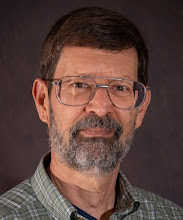Listening to a radio news show this past weekend, I heard a conservative / republican state that for him the difference between his core values and those of democrats / liberals was individual responsibility.
As he explained, it was up to him whether he succeeded or not. If he achieved success, he took the credit; if he failed, he took the blame. He wanted the government and society to be hands off, to get out of his way to compete and succeed. (Sounds more like a libertarian maybe?).
He stated that democrats / liberals wanted to credit / blame systems for success / failure, and therefore were interested in promoting and improving / complicating the system, which would hinder personal achievement for some (him) in an attempt to help elevate those who would otherwise fail / lose. He wanted no part of that!
Wow! How honest!
No wonder so many wealthy and privileged people lean right / republican! They tend to be the “winners” in the game of life! However, I suspect many are blind to a significant source of their success. Not to say that they didn’t work for it, but they may fail to see their unearned advantage / privilege that gave them an edge (male, white, born in America, historical cultural setting, inherited wealth / status, education…).
But what really confuses and frustrates me is that those who claim to be followers of Christ seem to buy into the conservative mindset and fail to see what Jesus and the Bible in general taught! (Oh, but didn’t Jesus say that God helps those who help themselves?)
I too was guilty of this thinking throughout the early years of my life! My dad (white, male, born in 1937 in the U.S.) pulled himself up “by the bootstraps”. He worked hard but he also had an advantage. (To be certain, he had disadvantages too: his father died when he was a teenager, he lived in relative poverty as a child…)
I too had social advantages (male, white, born in the U.S. in 1957), was gifted with health and intelligence from God, and was able to build on my father’s success, obtain education, and add more wealth and social status.
I was tempted to pray, like the Pharisee, “Thank you Lord that I am not like others!” Rather I needed to be confronted with the truth that, “To whom much is given, much will be required!”
Why was I given much?
To work toward making God’s Kingdom a reality on earth now! To help the poor, the sick, those imprisoned by the system, those who mourn, the humble, the hungry, the widow, the orphan, the stranger…. To make the road straight and level for all to travel. To abolish the artificial differences of status / worth based on gender, race, wealth…. To promote unity, and sufficiency for all.
I guess that makes me a liberal, since I want to change / improve the system to promote the common good, to level the playing field, to minimize, if not eliminate the winners and losers’ mentality. It need not be a zero sum game!
With Christ, all can win!
